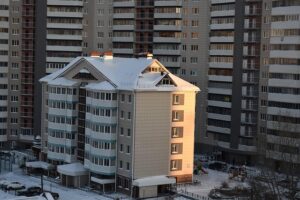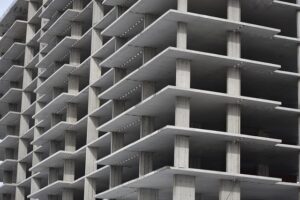Navigating Executive Condo (EC) Eligibility and Application Processes in Singapore
Singapore's Executive Condominiums (ECs) are a housing option for individuals progressing from public to private living, with specific eligibility criteria including income limits of $14,000 for singles and $16,000 for married applicants or those planning…….

Singapore's Executive Condominiums (ECs) are a housing option for individuals progressing from public to private living, with specific eligibility criteria including income limits of $14,000 for singles and $16,000 for married applicants or those planning to marry, a minimum household income of at least $14,000 or $16,000 respectively over the past 12 months, and being at least 25 years old without owning or having associates who own any residential property. The upcoming EC projects like Canberra EC and Parc Canberra are notable for their shorter minimum occupation period of 5 years compared to the standard 10 years for HDB flats. Prospective buyers must stay updated on HDB and CPF Board guidelines, as these are subject to change, especially amid public health concerns like COVID-19. Understanding the relationship between resale flats, subsidized flats, and schemes like the Long-Term Occupier (LTO) scheme is crucial for those looking to leverage the LTO advantage for future flexibility. For individuals considering an EC, staying informed on policy updates and eligibility conditions is key to navigating the dynamic housing market in Singapore, with a focus on upcoming ECs.
navvigating the nuances of Executive Condominium (EC) eligibility is pivotal for prospective homeowners in Singapore. This comprehensive guide dissects the criteria and policies that govern ECs, offering clarity on how they fit into your housing journey. From understanding the evolving landscape of EC policies to a meticulous application process for an upcoming EC, this article serves as your roadmap to securing an EC in line with your residential aspirations. Additionally, we delve into the intricate linkages between resale and subsidary flat ownership, ensuring you’re well-equipped to make informed decisions within Singapore’s dynamic property market.
- Understanding Executive Condominium (EC) Eligability Criteria for Prospective Homeowners
- The Evolution of EC Policies and How It Affects Your Housing Options
- Step-by-Step Guide to Applying for an Upcoming EC in Singapore: What You Need to Know
- Examining the Resale and Subsidary Flat Linkages for Eligible Applicants in the EC Market
Understanding Executive Condominium (EC) Eligability Criteria for Prospective Homeowners

When exploring the realm of Executive Condominium (EC) ownership, it’s crucial for prospective homeowners to familiarize themselves with the eligibility criteria set forth by the housing and development board (HDB) and CPF regulations in Singapore. ECs offer a unique blend of benefits, sitting at the intersection of public and private housing. They come with a shorter minimum occupation period compared to other public housing options, which is currently set at 5 years instead of the usual 10 years for HDB flats. This makes them an attractive proposition for those looking to upgrade from their HDB flat to a more spacious and privatized living space.
For singles, the income ceiling must not exceed $14,000 per month. Married applicants or those intending to get married must earn a combined monthly income of not more than $16,000. Additionally, applicants must typically be at least 25 years old with a minimum household income for the past 12 months. Applicants who meet these criteria can apply for an EC under the public housing scheme. It’s also important to note that applicants should not own any residential property or have an existing flat owned by them or someone he/she is related to. With upcoming EC launches, such as Canberra EC and Parc Canberra, it’s imperative for potential buyers to understand these eligibility requirements before making a commitment. Prospective homeowners interested in these properties should take note of the current regulations and future updates from HDB and CPF Board to ensure they are eligible and prepared for the transition into EC living.
The Evolution of EC Policies and How It Affects Your Housing Options

The evolution of Executive Condominium (EC) policies in Singapore has been both a reflection of and a response to changing demographic needs and housing market dynamics. Initially conceptualized as mid-market public housing with upgrade options, ECs are now an integral part of the housing landscape for young couples and families. Over the years, the criteria for eligibility have been refined, affecting who can purchase an EC and under what conditions. For instance, the income ceiling for applicants has been adjusted to ensure affordability while maintaining a level of social equity. The qualifying criteria for applicants have also become more stringent, stipulating that at least one applicant must be a Singapore citizen, and both must be first-time flat owners. These adjustments ensure that ECs remain accessible primarily to young couples who are ready to upgrade from their initial HDB flats.
For those considering an upcoming EC, it’s crucial to stay abreast of the latest policy updates. The Multi-Ministry Taskforce on COVID-19 has previously announced measures to stabilize the property market, which may include adjustments to EC supply and eligibility criteria. Such measures aim to provide a stable environment for first-time homeowners while maintaining a balanced property market. Prospective EC buyers should monitor these developments closely, as policy changes can significantly impact their housing options. With the ongoing commitment to meeting the diverse needs of Singaporeans, the policies governing ECs will likely continue to evolve, offering new opportunities for homeownership in the years to come. Keeping informed is key for anyone interested in purchasing an EC, as it ensures alignment with the current eligibility framework and the realization of the dream of homeownership.
Step-by-Step Guide to Applying for an Upcoming EC in Singapore: What You Need to Know

When considering the acquisition of an Executive Condominium (EC) in Singapore, understanding the eligibility criteria and application process is paramount. For Singaporean couples or first-time flat owners, the pathway to owning an EC is distinct from that of a private condo. As of the latest regulations, applicants must meet the following prerequisites: they or their spouse must not currently own or have applied for a flat from the Housing & Development Board (HDB), and their monthly household income should not exceed SGD14,000. Additionally, applicants must be able to demonstrate financial responsibility, with a maximum loan-to-value (LTV) ratio of 75% for mortgages.
Upon confirming your eligibility, the application process for an upcoming EC is structured into clear steps. Prospective buyers should start by reviewing the available EC projects and select one that aligns with their preferences and budget. Once a preferred project is identified, it’s advisable to book an appointment for a showflat viewing to get a firsthand experience of the property. The next step involves securing a loan from a financial institution, where prospective buyers can approach multiple banks or financial services to compare terms and interest rates. After finalizing the financial aspect, applicants must submit their applications through the Salesbook Balloting System operated by the Singaporean government. Successful applicants will then proceed with the standard application process for an EC unit, which includes signing a Sale and Purchase Agreement (SPA) and obtaining the necessary approvals from the CPF Board for the use of CPF savings for the purchase. Throughout this process, it’s crucial to stay updated on any changes to the eligibility criteria or application procedures as they can evolve over time. Keep an eye on upcoming EC launches by monitoring official announcements and real estate news to ensure a smooth transition into EC living.
Examining the Resale and Subsidary Flat Linkages for Eligible Applicants in the EC Market

In the realm of housing options for eligible applicants in Singapore, the Executive Condominium (EC) market presents a unique segment that caters to the aspirations of both families and investors. For those considering an EC as their next home, understanding the linkages between resale flats and subsidized flats is crucial. Prospective buyers who are looking at an upcoming EC must be mindful of the eligibility criteria set forth by the Housing & Development Board (HDB). Eligible applicants include Singaporeans who have fulfilled their minimum occupation period for a resale flat or those living in subsidized flats and seeking to upgrade. These individuals are entitled to apply for an EC without penalties, leveraging the Long-Term Occupier (LTO) scheme. This scheme recognizes the evolving housing needs of residents as they progress through different life stages.
Furthermore, the linkages between resale flats and subsidized flats are particularly beneficial for applicants who wish to sell their EC after meeting the five-year ownership criterion but before the end of their lease. Such a transaction allows them to monetize part of their property wealth while still retaining the remaining balance of their lease, thus providing flexibility for future housing plans. The eligibility to purchase an upcoming EC is also influenced by the Applicant’s Public Housing (APH) status. Singaporeans with an APH status have a three-year window from the date of selling their resale or subsidized flat to purchase an EC without serving a waitout period, making the timing of such transactions critical for strategic planning. Understanding these linkages and eligibility conditions ensures that applicants can navigate the EC market with confidence, whether they are looking at purchasing an upcoming EC or considering the resale market as part of their housing journey.
prospective homeowners considering an Executive Condominium (EC) in Singapore have a wealth of information at their disposal to navigate the unique eligibility criteria and application process. This article has outlined the evolution of EC policies, providing clarity on how these changes influence housing options within this niche market. With a clear understanding of the eligibility requirements, both first-time applicants and those leveraging their resale or subsidy flat links can make informed decisions when applying for an upcoming EC. Prospective buyers are advised to closely review the application guidelines and consider how their personal circumstances align with these criteria to ensure a smooth path toward EC ownership. As the landscape of housing options continues to evolve, staying abreast of the latest policies is key to capitalizing on the opportunities that ECs present.







